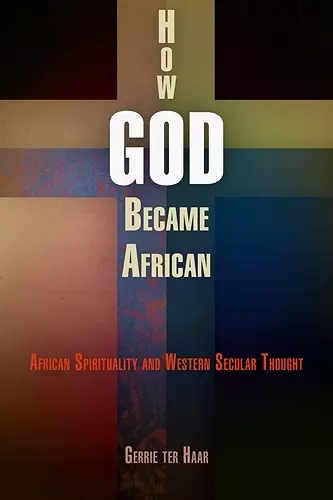How God Became African
African Spirituality and Western Secular Thought
Format:Hardback
Publisher:University of Pennsylvania Press
Published:20th Aug '09
Currently unavailable, and unfortunately no date known when it will be back

While African Christianity has wholeheartedly appropriated the symbols, scriptures, and traditions of historic Christianity elsewhere, it has also built on the rich history of the continent's indigenous spiritual beliefs.
Through the efforts of Western missionaries and home-grown churches and evangelists, Christianity has taken root in Africa with astonishing speed, to the point that Africa is now considered one of the heartlands of world Christianity. In a surprising reversal of the nineteenth-century missionary tradition, Africa no longer merely receives missionaries but is also the source of evangelization as African-influenced Christianity spreads around the new African diaspora. While Africans have wholeheartedly appropriated the symbols, scriptures, and traditions of historical Christianity elsewhere, they have also built on the rich history of the continent's indigenous spiritual beliefs. African Christianity has been influenced by and influences these beliefs and cannot be fully understood outside of this context.
In How God Became African, Gerrie ter Haar focuses in particular on the importance of African beliefs about the spirit world and spiritual power and their relationship with Christianity. Africans have historically acknowledged a distinct but not separate world of spirits existing alongside the material world that human beings can interact with through dreams, visions, spirit possession, and miracles. Also of key importance is the acute awareness among Africans of evil in the world and of witchcraft, the channeling of that evil by humans. Ter Haar continues with a consideration of how these beliefs affect issues of human rights and development in Africa, issues that are seen elsewhere in the world as fundamentally secular.
"The subject of How God Became African is of crucial importance, and its presentation is cogent, clear, and well organized. I can think of no book covering quite the same ground." * Andrew F. Walls, Center for the Study of Christianity in the Non-Christian World, Edinburgh University *
ISBN: 9780812241730
Dimensions: unknown
Weight: unknown
136 pages